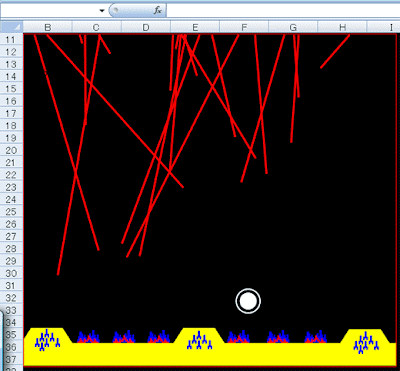 The
studies and practices of rhetoric have been around since the fifth century BCE
where the Greeks used the language skills taught to them by the Sophists to
operate within the structures Greek democracy. These new methods of discourse
became known as rhetoric and since then it has been evolving to include new
mediums and styles.
The
studies and practices of rhetoric have been around since the fifth century BCE
where the Greeks used the language skills taught to them by the Sophists to
operate within the structures Greek democracy. These new methods of discourse
became known as rhetoric and since then it has been evolving to include new
mediums and styles.
One new rhetorical medium that is still in its fledgling
stages and has immense potential and value is video games. The medium of video
games gets a lot of bad press. Some of it is deserved and some is overhyped
scare mongering perpetuated by a public that would rather stick its fingers in
its ears than admit that video games can be more than noisy diversions for
children and violence obsessed teenagers.
This is not the case. Video games can offer a unique perspective and method for experiencing rhetoric by allowing the player/experiencer to engage and interact with rhetoric through the use of gameplay.
First things first, in order to understand how rhetoric has
evolved in video games a working understanding of rhetoric, itself, is
required. Rhetoric is the way language and communication are used to make a
point. Communication is separate from language because communication does not
require language to be effective. This is especially true in video games
because very little communication in video games uses any direct language. In
video games main line of communication from player to game is gameplay.
 |
| Gamer Cat is Gaming |
The unique quality of video games that sets them apart from other entertainment mediums, such as novel and film/television is their interactivity. Players can affect the story, direct a character, and move around in an environment and the player does it all through the gameplay. Because of this quality video games can place players in a variety of situations and teach the player with choices and let those players live out the consequences of their actions.
The team at Extra Credits took a look at this aspect of video games in their episode "Narrative Mechanics." They look at how video games can make a rhetorical statement purely through game play. The game "Missile Command" used its gameplay to make rhetorical statements about desperation, sacrifice, and inevitability. As Extra Credits points out the loudest message that Missile Command enforces is that nuclear war has no victors. "You can't beat "Missile Command" (E. C.)
 |
| This image alone evokes many emotions and tells a tragic story. |
Another more recent game that uses its gameplay to make a rhetorical statement about inevitability is Mass Effect 3. I write a blog called A Few Clouds Short of a Brainstorm, in my spare time. One of my posts titled "Back in Action" is about the ending of Mass Effect 3 and how it rhetorically uses its gameplay to enforce a point about the personal limitations and the inevitability of chaos. The Mass Effect series is very well written and pushes the envelope of what video games are capable of and the themes they can deliver to a modern audience.
 |
| The Mass Effect series uses moral choice mechanics as a rhetorical device. |
Gameplay is a potentially powerful rhetorical tool and in the right creative hands it can communicate volumes to the player. I look forward to seeing this medium grow further and see the rhetorical strategies of gameplay evolve over time.
No comments:
Post a Comment